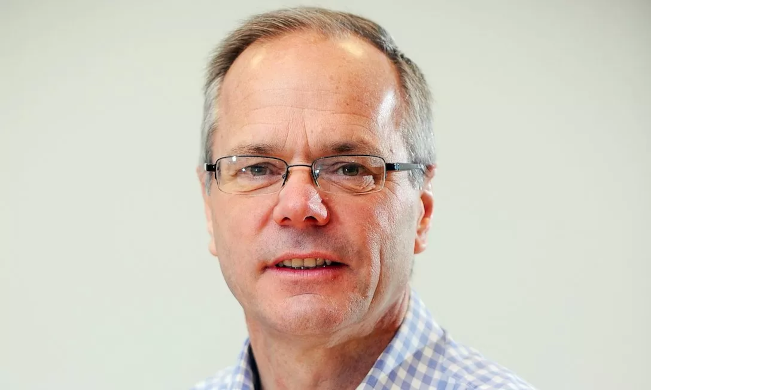Will there be a place for me in the Church of England?
by John Dunnett,
Evangelicals Now
September 26, 2023
In August, the Church of England announced that a series of meetings were to be held in September ahead of the bishops presenting to November's General Synod 'proposals to enable same-sex couples to come to church following a civil marriage or civil partnership for prayers of dedication, thanksgiving and for God's blessing'.
This was a stark signal that the bishops are still intending to 'move the goalposts' in the Church of England's teaching and practice regarding sexual ethics and to introduce significant change. As such, this will be a more substantive change than other liberalising changes in recent times since it will formally enshrine in our liturgy a doctrinal change divergent to our 'foundation deeds'.
Where does this leave those of us who wish to uphold the faith 'as we have received it'? Having been an ordained minister in the Church of England for more than 35 years, I wonder if there will be a doctrinal place for me in my later years? For those now setting out on ministry in the Church of England (either as ordained or lay) will they have the freedom to teach and preach from Biblical conviction without fear or comeback?
The Church of England Evangelical Council (CEEC) continues to pray that the House of Bishops will do a U-turn and abandon their intentions to introduce the Prayers of Love and Faith and/or their Issues in Human intended revision of Sexuality (a crucial document that secures Biblical standards amongst those being ordained in the Cof E). Relatedly, and along with other evangelical leaders, CEEC signed a (further) letter to the archbishops and bishops indicating their ongoing concern regarding the legal route being pursued to bring the proposals to General Synod.
However, it does appear that the bishops are determined to introduce change and, in view of this, CEEC is giving consideration to the provisions that would be essential if orthodox evangelicals are to remain in the Church of England.
In summary, there are certain principles that need to be held onto:
• that orthodox evangelicals need to be overseen by bishops and archbishops who hold onto Biblical truth and understanding,
• that pipelines are secured for the future of orthodox ordinands, parochial (and other) ministers, and bishops,
• that ministers have the freedom to teach and preach Biblical doctrine (including the freedom to call those who depart from it to repent) in churches, schools and elsewhere,
• that some form of 'differentiation' is introduced to enable a distinction to be evident to all (helpful to those wishing for change as well as those holding on to an apostolic inheritance) between the essentially different gospel of both groups.
In practice, there are a number of very specific provisions that will be essential if the principles are to be more than just words.
Firstly, orthodox clergy will need to be licensed and overseen by orthodox bishops. Similarly -- and it is important to note that these provisions matter to laypeople as well as ordained ministers -- church wardens need to be admitted to their office by orthodox bishops who support and teach Biblically, and congregations need to be offered the opportunity to be confirmed by bishops who stand for the apostolic and historic Christian faith.
Second, the selection, training and deployment of ordinands (through College/ Course) into curacies also needs to be overseen by orthodox bishops and directors of ordinands. Curates need to be assured an orthodox training incumbent.
Third, patrons (who have a significant role in the appointment of parochial clergy in the Church of England) need to have the freedom not to present revisionist ministers for licensing, and church planters and those involved in Bishops' Mission Orders (BMOs) need to be assured that they can advocate and pursue an orthodox Biblical position without this being in any way prejudicial to their opportunities and financial support.
Fourth, Parochial Church Councils (the governing body in local Cof E churches) need to be assured the freedom to employ only people who hold to an orthodox position, should they wish to.
Finally, congregational members need to be assured that their financial giving is only being used to support orthodox ministries and churches.
How these provisions can be assured and made possible is a 'crunch' question to which CEEC has given much thought over the last few years. This work has led to the conviction that it is not possible for orthodox and revisionist gospels to co-exist without differentiation -- and CEEC has explored a number of possible forms this could take in order to secure orthodox evangelical life and witness in the Church of England (further reading and videos about this are available on the CEEC website).
When all is said and done, the only cast-iron way to secure a place for those who wish to hold to the present teaching and practice of the Church will be through a structural rearrangement of the CofE which provides orthodox bishops and archbishops, pipelines to secure the future appointment of ministers, and legal protection for clergy and churches to minister in ways that keep faith with the apostolic inheritance that -- to date -- has determined the sexual ethics of the Church of England.
John is the National Director for the Church of England Evangelical Council
Also on https://anglicanmainstream.org/will-there-be-a-place-for-me-in-the-church-of-england/














